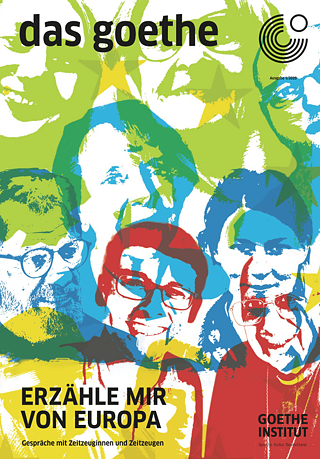New Issue "das goethe"
Tell me about Europe
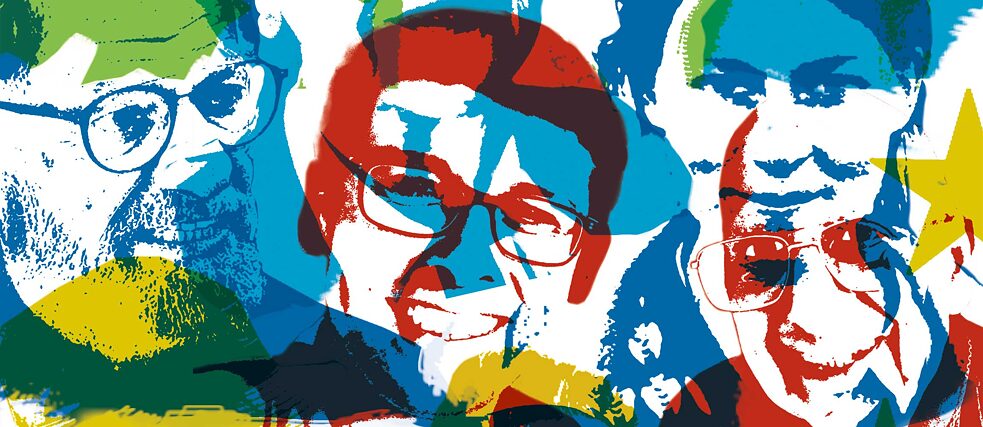
The first issue of 2020 launches the fifth publication year of "das goethe". So it’s practically an anniversary issue, which, this time, is devoted entirely to Europe. Based on the project "Tell Me about Europe", in five interviews two generations talk about European lives, opinions, and ideals.
"Tell Me about Europe" is one of five projects with which the Goethe-Institut will accompany the German EU Council Presidency with the support of the Federal Foreign Office in coming months. Young people speak with Europeans born before 1945 about individual life paths against the background of the idea of Europe. In this way, sentiments and visions from the beginnings of the EU meet the ideas of tomorrow’s Europe.
"das goethe" has captured eleven voices from five countries. These and other voices from all over Europe will be collected in the "European Archive of Voices" by the group "Arbeit an Europa" (Working on Europe) until the end of 2020. Upon completion, the archive will include a large number of European biographies, opinions, and perspectives; a publicly accessible incentive to think about Europe as it is or could be.
Europe is a generational project that started long before us, whose stories and voices we should preserve. We continue to write its future.
Klaus-Dieter Lehmann (President) and Johannes Ebert (Secretary-General) in the foreword to the ninth edition of "das goethe"
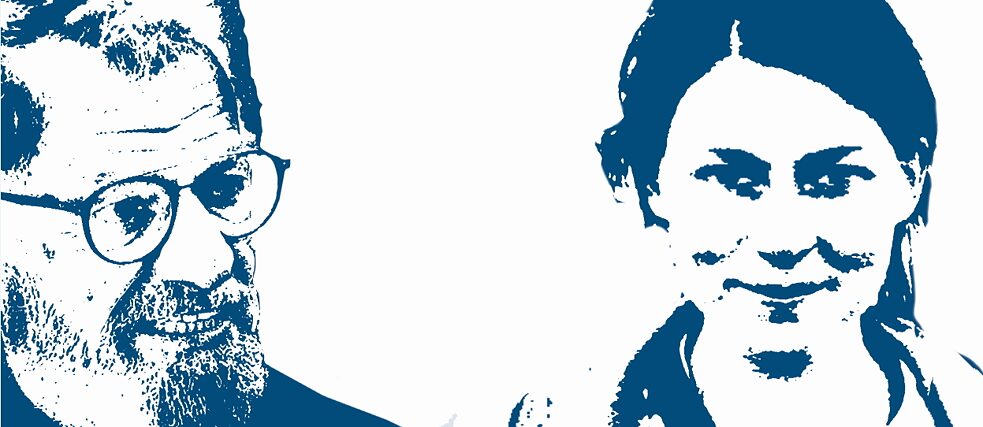 “The sixties were the decade of thinking about the future”: Interview with Egon Gál
| Collage (detail): © private/TEMPUS CORPORATE
“The sixties were the decade of thinking about the future”: Interview with Egon Gál
| Collage (detail): © private/TEMPUS CORPORATE
"The biggest community that appeals to emotions, so far, is the nation. Every community bigger than that is a matter of rationality, not a matter of solidarity and values that are built on morality. The question is whether we will create a narrative for Europe with which we could be able to identify: the feeling that there are many Europes around the world, that there are problems that must be solved without regard to state borders."
Egon Gál (born in 1940), philosopher, Slovakia, in a conversation with Tereza Reichelova, philosopher, political scientist, Czechia, project manager for Civic Belarus
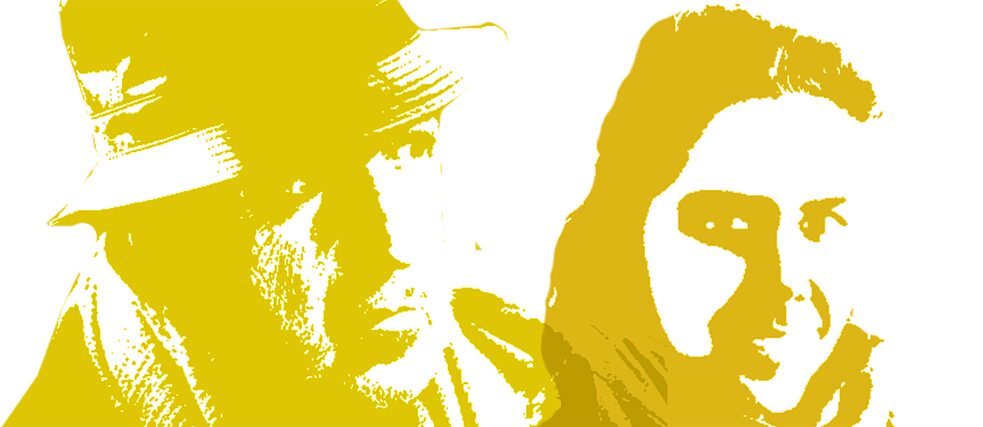 “I never met anyone who supported the regime, even if they didn’t always say it”: Interview with Jean-Claude Carrière
| Collage (detail): © private/TEMPUS CORPORATE
“I never met anyone who supported the regime, even if they didn’t always say it”: Interview with Jean-Claude Carrière
| Collage (detail): © private/TEMPUS CORPORATE
"So, for me Europe isn’t a peaceful and unified place. If that’s an advantage or a disadvantage, I leave it up to other people to decide, because the clash of cultures can sometimes be a good thing, you know? It allows for us to understand ‘the other’ even if it is through the process of trying to destroy them. (…) We mustn’t assume that because we are European, we will adore our neighbours."
Jean-Claude Carrière (born in 1931), screenwriter, France, in a conversation with Jeanne Pansard-Besson, opera director, France
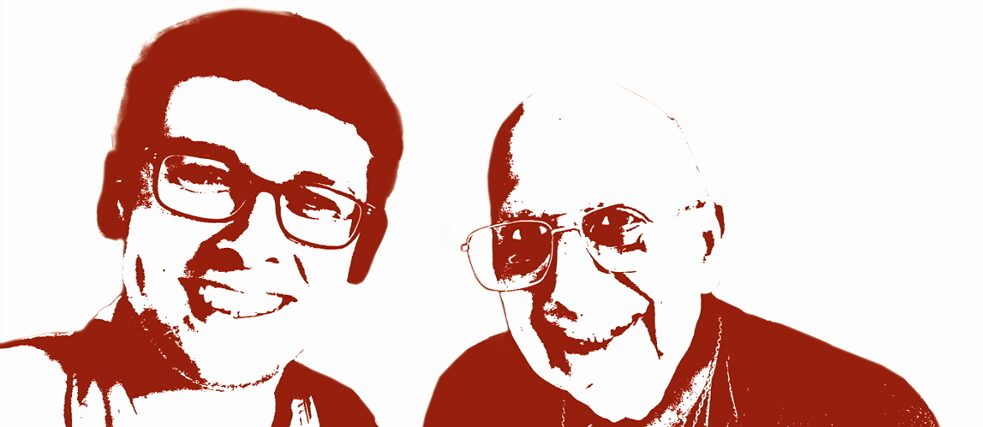 “Right now in globalisation we need a new humanism”: Interview with Karin Krog
| Collage (Detail): © privat/TEMPUS CORPORATE
"The problem is, that we don't have models, because yesterday's model is no longer needed and tomorrow's isn't here yet. So, the trick is to invent new ways. I always say the challenge of the twenty-first century is to live together, respecting our differences, because right now in globalisation we need a new humanism. The future’s uncertain, but it's a commitment. Building a new common house – that, then, is the beauty and difficulty of life today. When politics loses its values, it loses its soul. If that happens, the organism deteriorates, rots and corrupts."
“Right now in globalisation we need a new humanism”: Interview with Karin Krog
| Collage (Detail): © privat/TEMPUS CORPORATE
"The problem is, that we don't have models, because yesterday's model is no longer needed and tomorrow's isn't here yet. So, the trick is to invent new ways. I always say the challenge of the twenty-first century is to live together, respecting our differences, because right now in globalisation we need a new humanism. The future’s uncertain, but it's a commitment. Building a new common house – that, then, is the beauty and difficulty of life today. When politics loses its values, it loses its soul. If that happens, the organism deteriorates, rots and corrupts."
Bartolomeo Sorge (born in 1929), Jesuit, Italy, in a conversation with Jörg Nies, philosopher, theologian, and Jesuit, Sweden
Read the full-length interviews in the current issue of "das goethe" – now as barrier-free PDF!
